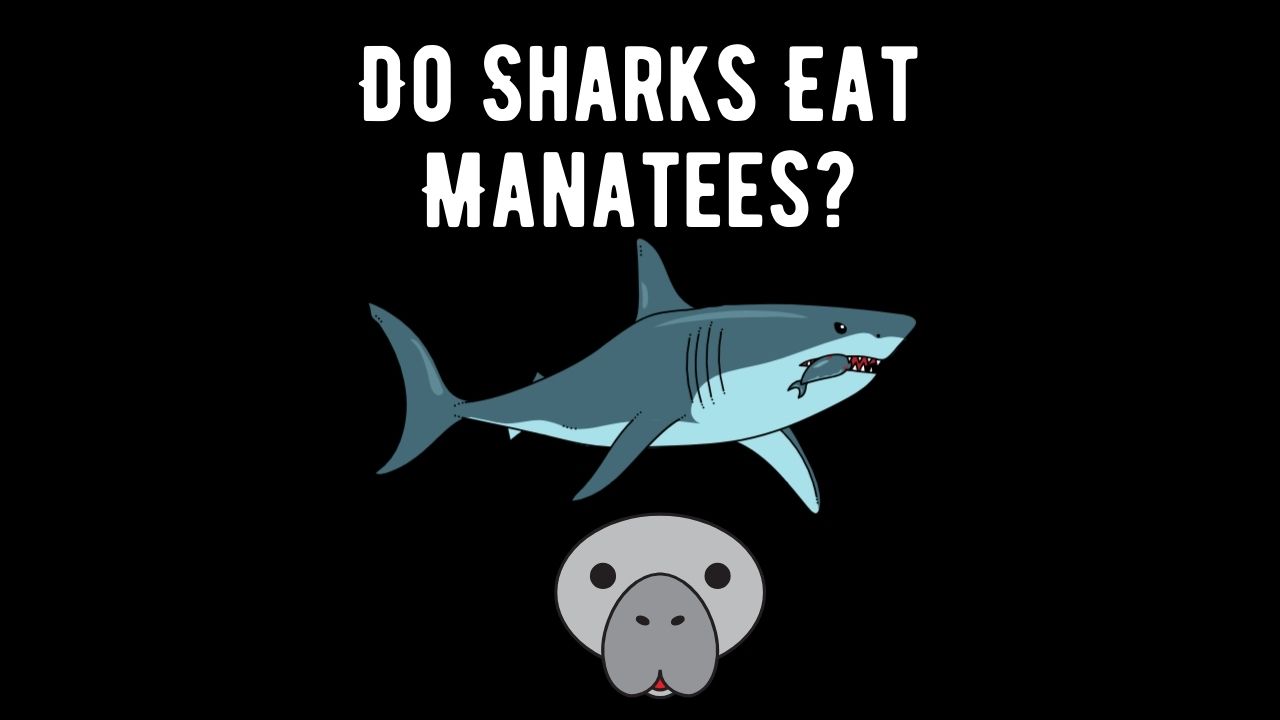Manatees, often referred to as “sea cows,” are gentle herbivorous marine mammals known for their slow movements and peaceful demeanor. While sharks are not their primary predators, manatees may face threats from various sources in their aquatic habitats. Let’s delve into the relationship between sharks and manatees, exploring the potential risks these gentle giants encounter in their underwater homes.
1. The Unusual Predation: Sharks and Manatees
- Manatees, with their docile nature and herbivorous diet, are not the typical targets for large predators. However, sharks, known for their opportunistic feeding habits, may occasionally target manatees.
- Large predators like tiger sharks have been documented consuming West Indian Manatees in specific circumstances.
2. Infrequent Occurrences:
- While sharks do eat manatees on rare occasions, these interactions are not frequent. Manatees generally do not fall within the regular prey items for most shark species.
- The infrequency of such predation events highlights the atypical nature of sharks targeting manatees.
3. Manatees and Their Limited Predators:
- Manatees, despite their size, lack significant natural predators. While sharks, killer whales, alligators, or crocodiles theoretically could pose a threat, such interactions are relatively rare.
- The cohabitation of manatees and these potential predators in the same waters is uncommon, contributing to the limited instances of predation.
Sharks and Manatees: Interaction and Predation
1. Sharks as Predators:
- Sharks, particularly large species like tiger sharks and bull sharks, have been observed to be opportunistic predators.
- While sharks primarily feed on fish and marine mammals, manatees could be potential targets in certain circumstances.
2. Risk Factors:
- Manatees may face increased vulnerability when they are sick, injured, or in compromised health.
- The slow movements of manatees make them susceptible to predation, especially in areas where sharks coexist.
3. Documented Cases:
- Although direct predation of sharks on healthy manatees is not frequently documented, there have been instances where sharks have been attracted to injured or ailing manatees.
Manatee Predators Beyond Sharks
While sharks pose a potential threat, manatees encounter other challenges and natural predators in their environments:
1. Boat Strikes:
- One of the most significant threats to manatees comes from boat strikes. Manatees, with their slow movements, are often unable to evade fast-moving watercraft, resulting in collisions that can cause severe injuries or fatalities.
2. Cold Stress:
- Manatees are susceptible to cold stress, especially in colder water temperatures. During unusually cold periods, manatees can suffer from hypothermia, impacting their health.
3. Habitat Loss:
- Loss of habitat due to coastal development and human activities poses a threat to manatees. Reduction in seagrass beds, a vital food source for manatees, affects their overall well-being.
4. Red Tide Events:
- Harmful algal blooms, such as red tide, can lead to the production of toxins in the water. Manatees consuming contaminated seagrasses may experience negative health effects.
5. Human Interaction:
- Manatees may face challenges from human activities, including entanglement in fishing gear and ingestion of marine debris.
Conservation Efforts and Protection
Given the various threats manatees encounter, conservation efforts play a crucial role in safeguarding these gentle giants:
1. Protected Areas:
- Establishing and maintaining protected areas for manatees helps mitigate the impact of human activities and provides safe spaces for their natural behaviors.
2. Boating Regulations:
- Implementing and enforcing boating speed regulations in manatee habitats helps reduce the risk of collisions and injuries caused by watercraft.
3. Rescue and Rehabilitation:
- Rescue and rehabilitation efforts are critical for injured or sick manatees. Dedicated facilities work towards the recovery and release of manatees into their natural habitats.
4. Public Awareness:
- Raising public awareness about the importance of conserving manatees and their habitats fosters a sense of responsibility and encourages actions to protect these marine mammals.
Conclusion
While sharks may pose a potential threat to manatees, various other factors, including human-related activities, environmental changes, and habitat degradation, contribute to the challenges faced by these gentle marine mammals. Conservation initiatives and public awareness are essential components of ensuring the well-being and survival of manatees in their aquatic homes. As we continue to understand the complexities of their ecosystems, collaborative efforts become increasingly vital for the coexistence of manatees and the diverse marine life sharing their habitats.
